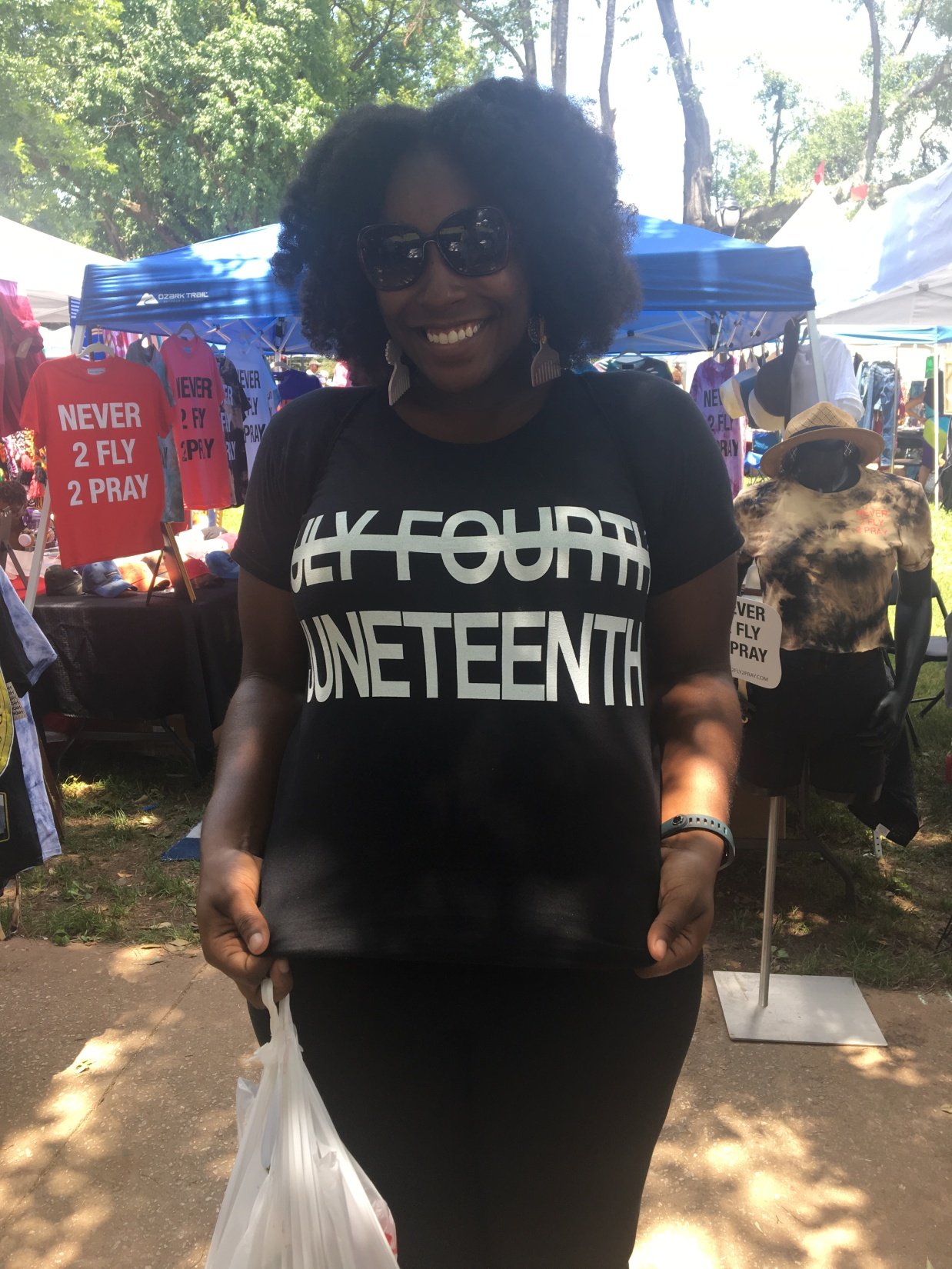Dr. Emily Blanck, Associate Professor, College of Humanities and Social Sciences

Tell us about the research that you are doing:
I am researching the history of Juneteenth’s spread throughout the United States. Originally a holiday to recognize the end of slavery in Texas, it has become America’s emancipation holiday. Juneteenth recognizes the final reading of the Emancipation Proclamation, thus freeing the slaves of Texas on June 19, 1865, two months after the surrender at Appomatox. (Slavery did not end for Missouri, Delaware, Kentucky or Maryland until the 13th Amendment in December 1865). Formerly enslaved people of Galveston Texas celebrated Juneteenth in 1866, one of the first commemorations of the end of slavery. During the first and second Great Migration, Texans travelled out of the state and brought their holiday with them. It took off in cities like San Francisco, Milwaukee and Denver. Today, hundreds of communities throughout the US commemorate Juneteenth. I’m researching why this holiday has had so much resonance, and how it has changed over the past century and half.
What made you want to undertake this work?
I research the history of slavery and am also a faculty member in American Studies. I was looking for a project that would encourage interdisciplinary research to examine the impact of slavery long-term. I went to college in Texas and have family connections there, where I knew a little about Juneteenth. After my first book, Tyrannicide: Forging an American Law of Slavery in Revolutionary South Carolina and Massachusetts, I began researching Juneteenth and found its history fascinating. Almost no-one else was researching it and so, I really wanted to go deep and understand it.
Why would our students at Rowan University be interested in this work?
In 2020, Juneteenth became a key moment in the movement this summer toward racial justice. Businesses, activists, and governments all noted that this day gives us as a community a moment to reflect on what it means, for real, to be a country that has repudiated slavery and its vestiges. By celebrating the emancipation of enslaved people in America, we must consider what it means to be free. The murders of Breonna Taylor, George Floyd and countless others at the hands of police has laid bare that there is still so far to go. Juneteenth has become a touch point for us to reflect upon that and consider our roles in changing this reality.
Is there anything else you’d like to tell us about your work?
The best part of this research is getting to go visit Juneteenth celebrations throughout the US every summer. Each community presents its best self and an optimistic future grounded in a challenging reality. Every community does it in their own way, and it is a real pleasure to get to witness.
